Hand-brewing V60 details | Scott Rao demonstrates the skills of using V60 to make coffee by hand
Professional coffee knowledge exchange more coffee bean information please follow the coffee workshop (Wechat official account cafe_style)
Extraction is the process of dissolving a substance in water. The principle of extraction is nothing more than the release of substances needed by coffee powder when it comes into contact with water. Steaming is to infiltrate all coffee powder and prepare for the following formal extraction.
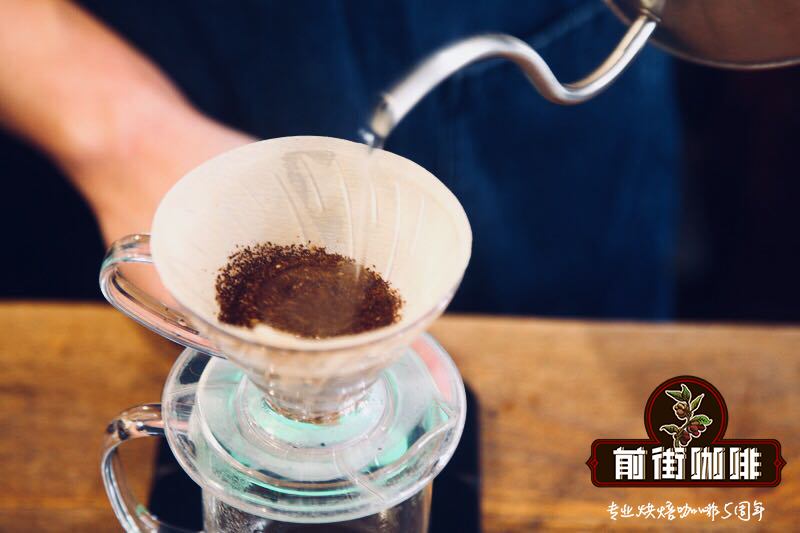
Hand-brewed coffee is a simultaneous process of flavor extraction and filtration, and the extraction takes place at the center of pouring water. The key lies in how to control and balance the extraction amount of various components in roasted beans to prepare coffee.
V60 is the most commonly used filter cup. V60 has two punching methods: one-stage water injection or three-stage water injection. I think the latter is more suitable for cafes because the product is more stable. After watching a video of Scott Rao using a spoon to help exhaust when steaming, European bar operators began to follow suit. In the course of Scott Rao's class, we can also see his heroism in cooking V60, but with the help of other techniques, the extraction efficiency can be improved very efficiently.
This time Scott Rao brings complete cooking instructions. It's really quite complete, so complete that the film is as long as 12 minutes, with shots from different angles.
Below we briefly record some of the key points in the film, but we need to have some ideas and ideas before cooking. The coffee powder for V6001 is controlled at 15-20 grams, because the coffee powder needs to be ground finer (but the finer the powder = the more bitter the coffee), and if there is less coffee powder, the average water temperature is slightly lower.
Key points:
1. Grind fine? Or rough?
If you do not talk about TDS, do not talk about the extraction rate, purely in terms of taste, Scott Rao believes that as long as there is no tight astringency in the taste, you can boldly continue to grind. Until your coffee has this taste, you can take a step back and grind it a few squares.
2. Good cooking index?
In the film, Scott Rao puts forward an observable focus on steaming: 'bubbles'. The shorter the time to let the gas out of the coffee powder completely, the faster the coffee powder will enter a consistent state, and the more consistent results can be achieved in the extraction. Uniform extraction can not only make the flavor more obvious, but also make the adjustment have a vein to follow.
| | pre-soak (Pre-wetting) |
Pre-soaking will moisturize coffee particles and soluble substances, and can also help reduce bias during extraction. At this stage, the ratio of water 3 coffee 1 is the most suitable. Coffee particles absorb twice their weight of water, so the 2:1 ratio doesn't easily wet the entire coffee layer. Therefore, the ratio of 3:1 during pre-soaking is the most appropriate.
In addition, I would like to emphasize that the stirring process is necessary for pre-soaking.
I have also determined that during pre-immersion, there is a significant difference between the stirring process and the results without. Stirring can improve the consistency and yield of extraction.
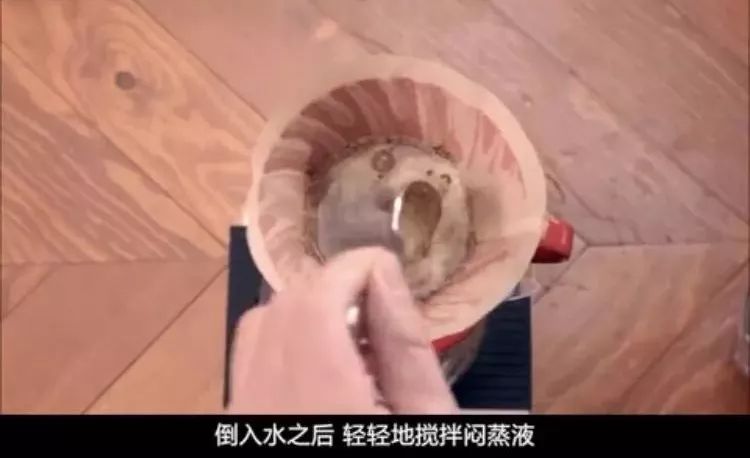
@ leon translation
At the end of the film, the powder layer is washed and boiled. Scott Rao pointed out that the powder layer should be like sand drenched by the sea and should be flat. If it is muddy, and if the water flow is blocked in the later stage of cooking, you can consider roughening the grinding degree.
Cooking details:
-V60 material Select 'plastic'-
Surprisingly, Scott Rao chose the material of plastic. The reason is that the poor thermal conductivity of the plastic also means that more heat during cooking is less absorbed by the filter cup.
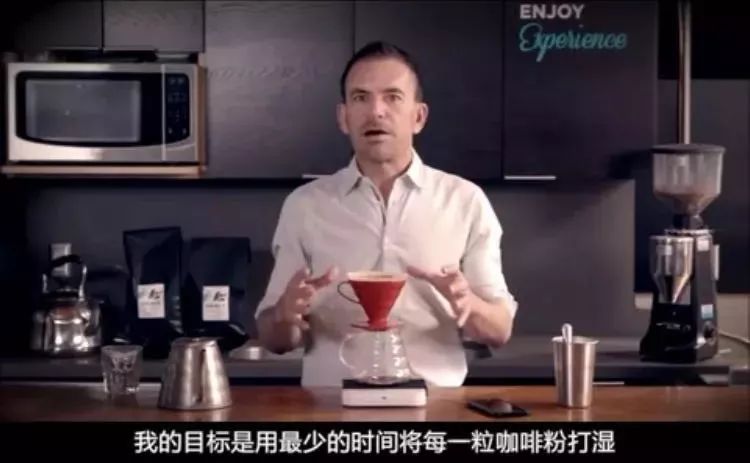
@ leon translation
As it was so unexpected, I immediately went online to check the thermal conductivity of the substance. Metal 60-80 / ceramic 1.2 / plastic 0.2-0.3 for reference. )
-V60 filter paper selection-
Scott Rao advises people to buy more different filter papers on the market. Soak the different filter paper in the water cup for 10 minutes at a time, taste the water in the cup and find the one with the least taste.
-steaming action-
Scott Rao recommends steaming with three times the amount of powder and stirring gently with a spoon. The purpose of stirring is to soak the part of the powder layer that has not yet been soaked by water. Steaming can be measured by bubbles. If no bubbles emerge after 10 seconds of steaming, it represents a very good steaming stir.
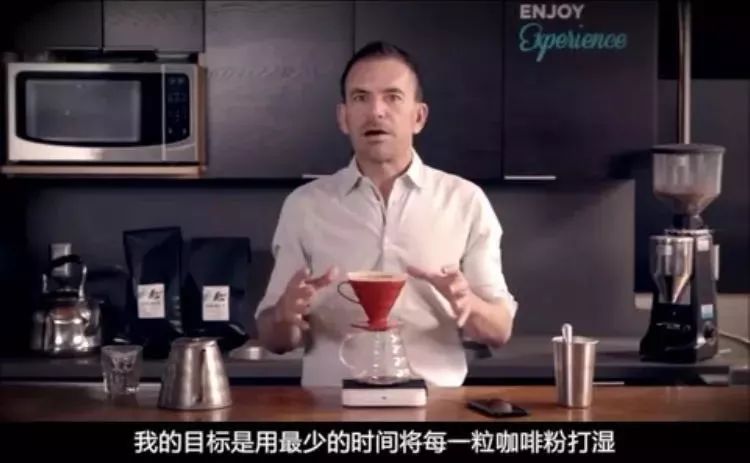
@ leon translation
On the other hand, if there are bubbles when it is boiled for 1 minute, it represents that part of the powder is not soaked until 1 minute. In this way, it is easier to produce coffee with uneven extraction.
-the height of the water level during water injection-
Scott Rao hopes to circle the water during water injection, but to keep the height of the water level consistent, not sometimes high and sometimes low. The water flow is unstable, sometimes large and small, sometimes dashing, sometimes ticking off, resulting in different degrees of soaking in different areas of coffee powder, and the taste of coffee will be affected.
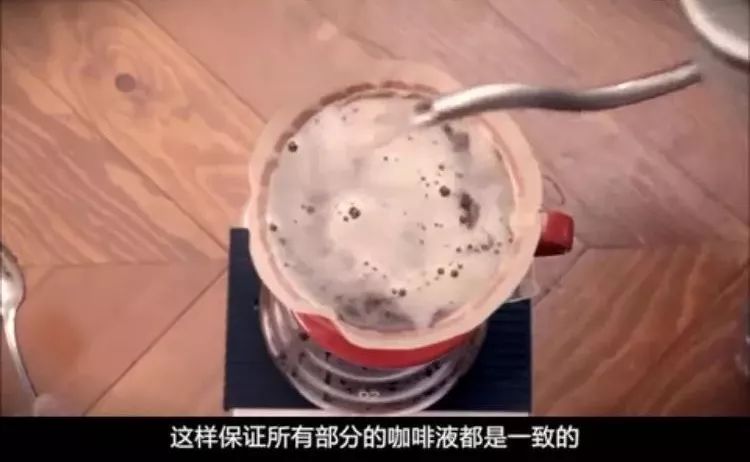
Stir the spoon after the main injection; shake the filter cup before the cooking is finished
After the main water injection paragraph is completed, Scott Rao will pick up the spoon again and gently draw a circle. This action is to prevent the coffee powder from sticking to the wall of the filter cup, so that the coffee can continue to be extracted throughout the brewing process.
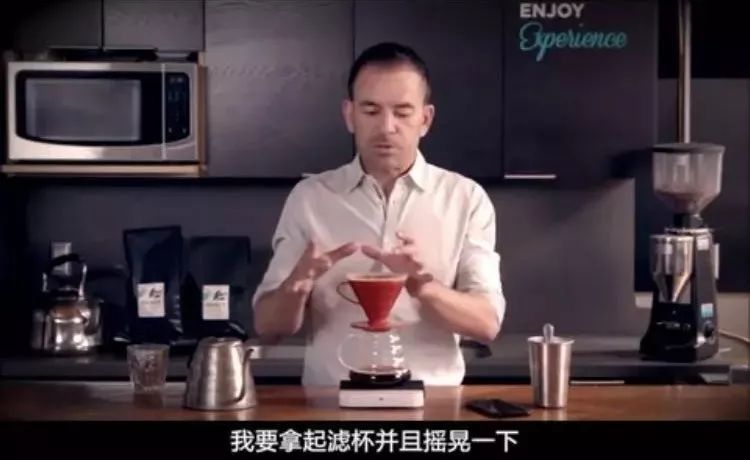
Before the brewing is almost finished, Scott Rao will pick up the filter cup and shake it gently to avoid the stickiness of coffee powder on the wall of the cup and a more complete extraction.
The above are several key points about cooking in Scott Rao films. How to handle the size of water injection when making coffee by hand?
Fine flow for the first water injection
Fine water is used for the first water injection, and it is cooked more slowly.
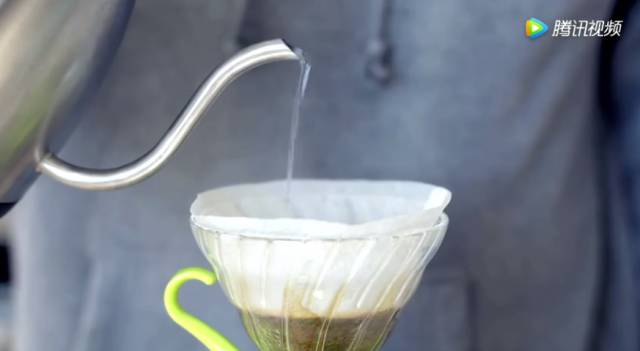
Coarse water column for second water injection
In the second water injection, a thick water column is used for faster cooking.
Regardless of thickness, the flow rate must be stable for cooking.
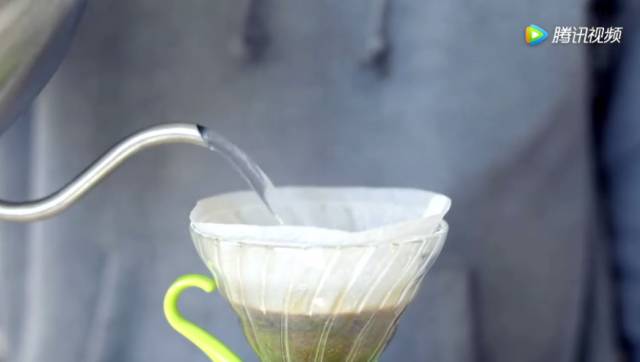
In order not to weaken the supporting force of the powder layer
It is necessary to grasp the strength of the water column and the position of water injection.
Plus a stable circle technique.
The amount of water injected
Generally speaking, it is not suitable to use V60 to inject water too high.
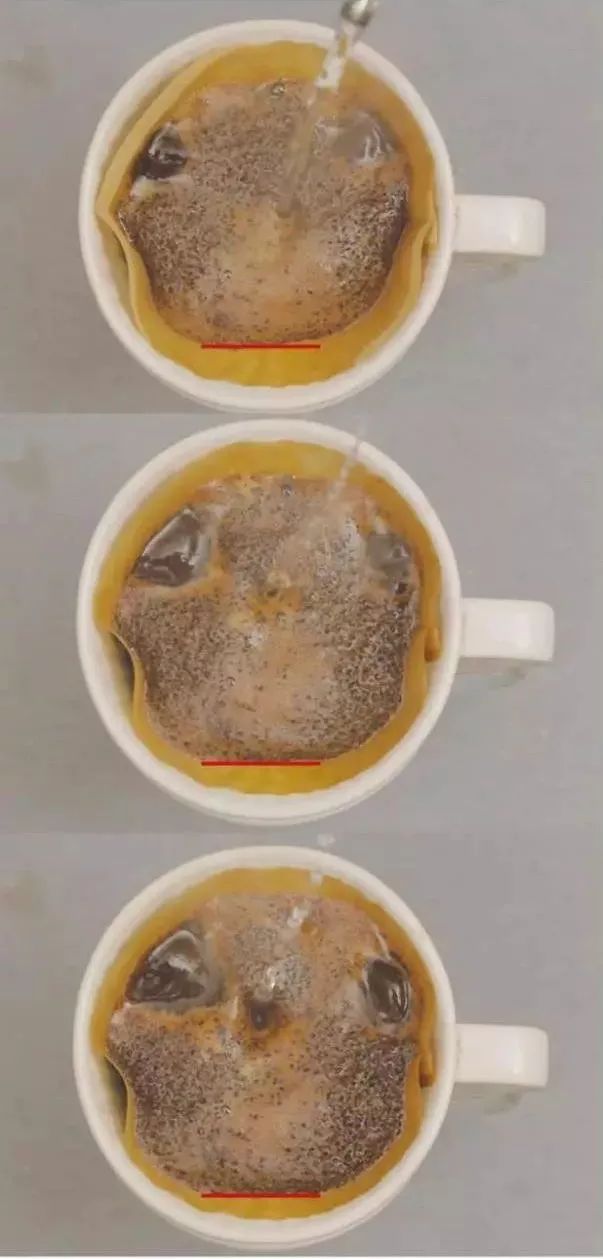
If you want to make a good cup of coffee, all aspects of control must be very exquisite! Diligent practice is also essential.
[recommended]
Hand punching skills | three-stage style, mixing method, one-knife flow, drip method, three warmth
Hand punching technique | Volcano flushing, meteorite flushing, pine house flushing, zigzag flushing, cooling hand flushing method
Tips | Common mistakes in making coffee by hand
Hand flushing skills | how to control water flow, hand flushing and water injection skills
Hand coffee | time point of the first and second water injection
Grinding degree distinction | coarse powder, medium powder, medium fine powder, fine powder, very fine powder
[technical post] practical parameters of gouache ratio of hand-brewed coffee
Hand brewed coffee | Coffee beans with different dates have different hand brewing parameters.
Water | effect of different water quality on the taste of coffee
[water temperature] recommended cooking parameters | adjust the water temperature to control the taste!
Important Notice :
前街咖啡 FrontStreet Coffee has moved to new addredd:
FrontStreet Coffee Address: 315,Donghua East Road,GuangZhou
Tel:020 38364473
- Prev
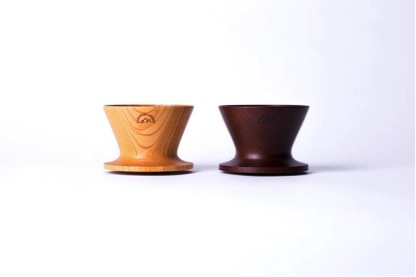
Coffee utensils | Yasukivo Natural wooden filter Cup brewing experience sharing
Professional coffee knowledge exchange more coffee bean information please pay attention to the coffee workshop (Wechat official account cafe_style) Yasukivo wooden filter cup using Yamanaka-shikki lacquerware exquisite handmade, is a relatively rare filter cup material. YASUKIYO WOODEN DRIPPER BROWN Yamanaka-shikki lacquer ware originated from Ishikawa Prefecture, Japan. Ishikawa lacquer ware was made.
- Next

How to choose Italian Coffee Machine according to its characteristics and functions
Professional coffee knowledge exchange more coffee bean information please follow the coffee workshop (Wechat official account cafe_style) Italian coffee machine _ Italian coffee machine _ semi-automatic Italian coffee machine _ automatic Italian coffee machine first let's take a look at the main points of purchase! After you have a certain understanding of the coffee machine, you can find the type of machine that suits you more quickly. Choose one of the three categories first. Coffee machine is mainly
Related
- What is the Philharmonic pressure? How to use Philharmonic pressure to make delicious coffee
- Why does a hand grinder have more fine powder than an electric grinder?
- In addition to the hot mom, what is the difference between the versions of EK43 | ditting and Mahdi ek43?
- What kind of equipment do you need to make coffee by hand? Introduction to novice starter cooking equipment tools
- Espresso needs to be ground how thick and thin scale entry Italian Coffee Machine Bean Grinder investigation and Grinding course
- How much does it cost to open a small private cafe? How much does it cost to learn coffee? How to operate it?
- The difference between the flavor characteristics of hand-brewed coffee and coffee maker is hand-brewed coffee really better than coffee maker? Can I use a coffee machine to make coffee beans by hand?
- The difference between 01 and 02 of hario v60 filter cup what is the difference between 01 and 02 filter cup opening and cooking flavor
- What's the difference between the smart cup and the French kettle? Which is better, the French kettle or the Smart Cup?
- What's the difference between a smart cup and a V60 filter cup? The difference between the taste of smart cup and hand-brewed coffee

